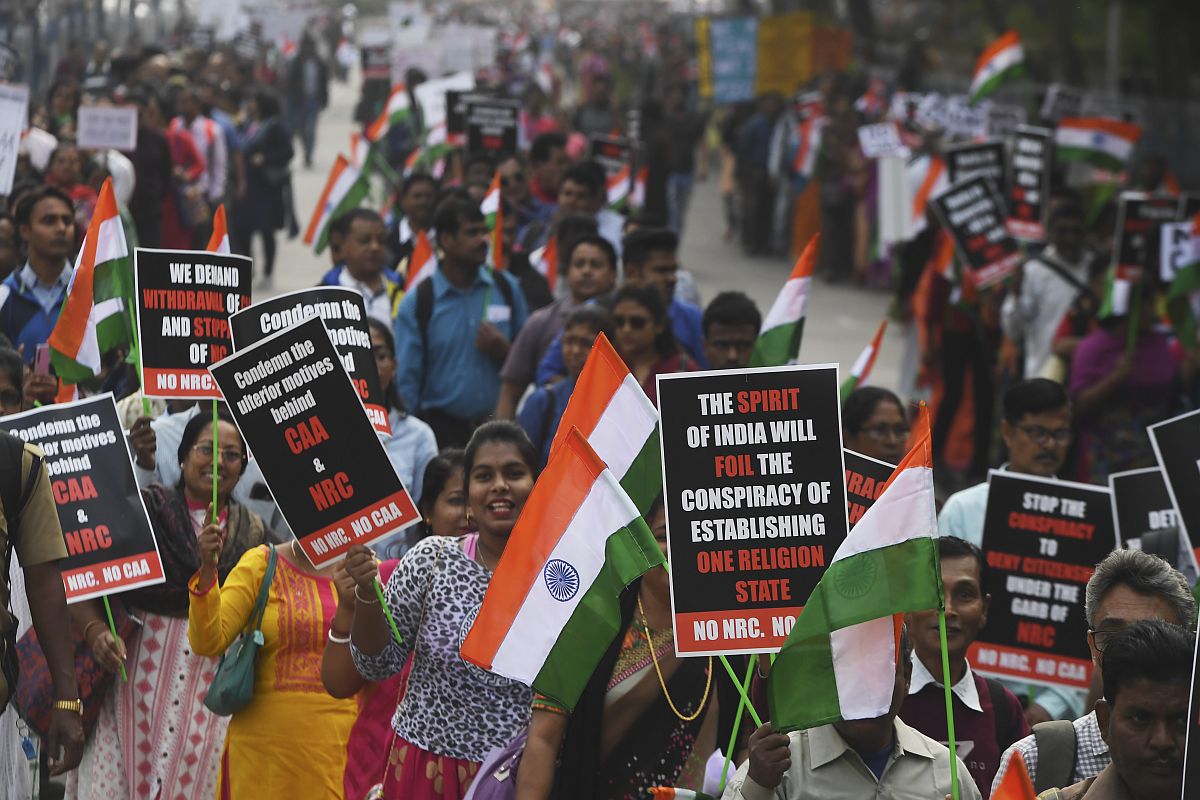Amidst diplomatic backlash from the European Union (EU) Parliament on the Citizenship Amendment Act (CAA) and the restrictions in Jammu and Kashmir, New Delhi has strongly reiterated that these matters are entirely internal to India.
This came as 626 of the 751 members of the EU Parliament moved six resolutions on CAA and Kashmir in a bid to pressure India.
Advertisement
A total of six resolutions have been tabled by groups within the European Union (EU), including the Group of the Progressive Alliance of Socialists and Democrats in the European Parliament (S&D), Group of the European People’s Party (Christian Democrats) (PPE), Group of the Greens/European Free Alliance (Verts/ALE), European Conservatives and Reformists Group (ECR), Renew Europe Group (Renew) and European United Left/Nordic Green Left (GUE/NGL) Group.
The EU Parliament is set to debate on the resolutions tabled by a large chunk of its members, saying the enactment of the new law “marked a dangerous shift in India’s citizenship regime”.
“The CAA marks a dangerous shift in the way citizenship will be determined in India and is set to create the largest statelessness crisis in the world and cause immense human suffering,” the resolution notes.
“Instead of addressing the concerns, offering corrective action, calling for security forces to act with restraint and ensuring accountability, many government leaders have been engaging in efforts to discredit, rebuke and threaten the protesters,” the resolution states.
The resolutions have urged the Indian authorities to “engage constructively” with those protesting against the law and consider their demands to repeal the “discriminatory CAA”.
In response to the draft resolution, sources in the Ministry of External Affairs said the government took note of the EU move immediately and will withstand the EU pressure by reminding its members that the CAA is “an internal matter” of India.
“CAA is a matter that is entirely internal to India. This legislation has been adopted by due process and through democratic means after a public debate in Parliament.”
India hopes that the “sponsors and supporters” of the resolutions will engage with the government to get a full and accurate assessment of facts before they proceed further, the sources said.
They further said that “as fellow democracies, the EU Parliament should not take actions that call into question the rights and authority of democratically elected legislatures in other regions of the world”.
“Every society that fashions a pathway to naturalisation contemplates both a context and criteria. This is not discrimination. In fact, European societies have followed the same approach,” a government source quoted by PTI said, explaining why India is opposed to the resolutions at the EU parliament.
However, an official statement by the MEA on the resolutions is yet to be made.
The resolutions, set to be debated in the European Parliament in Brussels next Wednesday and voted the day after, come less than two months before Prime Minister Narendra Modi is likely to travel to Brussels for the India-EU summit on March 13.
The CAA came into force in India last December amid massive protests in India.
The new law, passed by Parliament last month, offers citizenship to non-Muslim persecuted religious minorities from Pakistan, Bangladesh and Afghanistan. India has been witnessing massive protests against the new law with opposition parties, civil rights groups and activists saying granting citizenship based on religion is against the foundational principle of the Constitution.
The Government has been emphasising that the new law does not deny any citizenship rights, but has been brought to protect the oppressed minorities of neighbouring countries and give them citizenship.
Interestingly, the resolutions come in the backdrop of EU diplomats not visiting Jammu and Kashmir along with 15 other foreign envoys earlier this month.
Earlier it was reported that certain European envoys were not keen on a ‘guided tour’ of J-K and rather wanted to meet the people they wanted to interact with.
However, the Indian government junked the reports as ”unfounded and mischievous” and said that the envoys will undertake the trip at a later date.
Earlier in October last, a delegation of Members of European Parliament (MEPs) had reached Jammu and Kashmir to assess the situation on the ground even as sporadic incidents of violence were reported from the Valley following the abrogation of Article 370.











